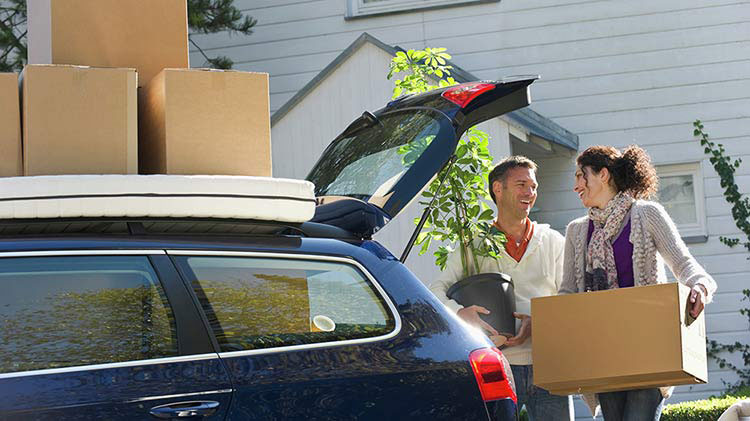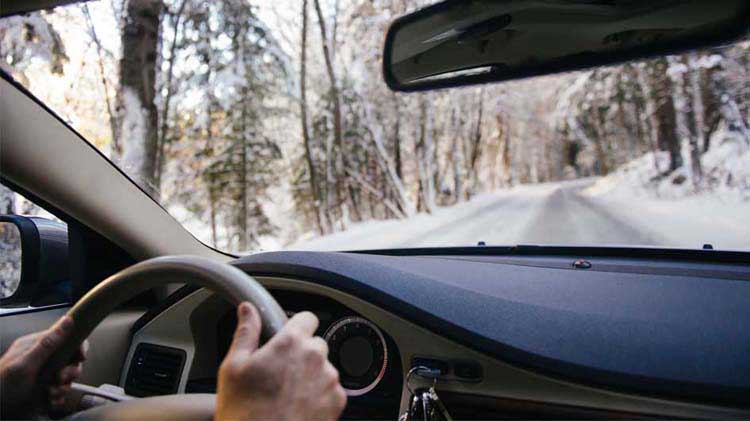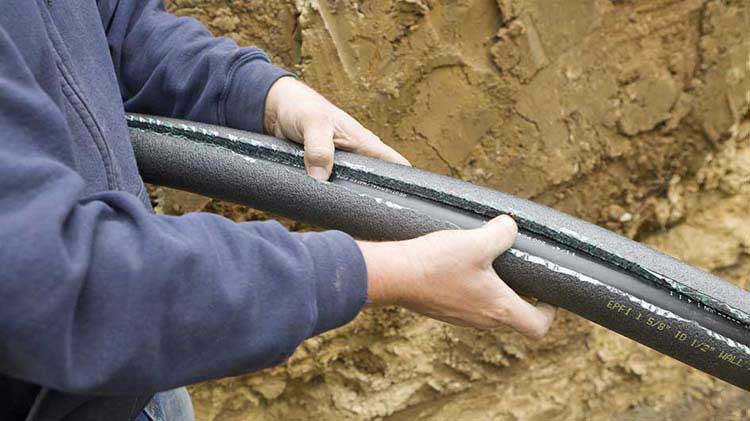Moving state to state: climate and regional differences
When moving state to state there are considerations, such as climate and driving differences.
Moving can be an exciting change but also complicated. The complications grow when you are moving across state lines. When you move to a new state you'll get more than a change of scenery, you may also discover new challenges to consider such as climate, traffic and insurance.
Depending on where you're coming and going from, these differences can be costly and challenging if you don't plan ahead. Here are some things to consider when moving across state lines.
Moving to a warmer climate
- If you're coming from a northern state like New York or Illinois, you'll need to know that you shouldn't leave items in your car in the summer. The summer heat in states like Texas and Arizona is enough to melt electronics. And depending on what it is, and your insurance, it may or may not be covered.
- Make an inventory of your items before you leave and pack smarter by not taking items you won't need such as a snow blower. It might be better to sell or give away those types of items than pay to move and store them in your new state.
- Your inventory should also include your clothes. That heavy parka may not be needed in your new state but you might want to wait until you've moved to buy a new wardrobe. This will save you on moving expenses and time.
- Consider your pet's health when you move. It may take a while for them to acclimate to warmer weather and beware of dehydration.
- You should also be on the lookout for your own health. Dehydration and sun stroke can be dangerous if you aren't aware of the symptoms such as headache, dizziness and seizures. Ease into any outdoor activity after your move until you're acclimated.
- Moving to a state like Georgia can be a peach but the sun can make your afternoon commute the pits. You might consider a sunscreen for your front windshield to use whenever you are parked outside. Consider extra shields for the passenger windows too.
Moving to a colder climate
- If you're coming north to a state with seasons like Pennsylvania or Wisconsin, you'll want to avoid keeping items in your car during the winter. A northern cold spell can damage items in your car as badly as a southern heat wave and your insurance might not cover the damage.
- Keep an eye on your pipes. Water pipes can freeze in cold climates, so keep your heat up in cold weather, close your garage doors and in sub-zero temperatures you might want to leave a faucet dripping.
- Take time to learn about driving in winter weather. Snow and ice are challenging even to those who have lived with it for years. It's even more challenging to those who are not used to it. Stay home if you can. If you can't avoid traveling in winter weather, allow extra time to get to your destination, go slow and allow extra braking distance. In addition, if you become stranded in your vehicle during inclement weather, travel with a blanket for warmth if needed until help can arrive.
- Allow extra time to clear your car windows of ice and snow to ensure safe driving. In Midwest and Northern states you'll need a snow brush and an ice scraper in your car. Driving gloves and a steering wheel cover can also help keep the cold away.
- Hail can do a number on your car. Park in a covered garage if you can.
Regional driving differences to consider
- If you're moving to Midwest farm country like Iowa or Kansas, you'll want to watch out for farm equipment on the roads. They're bigger than you, so give them the right of way.
- Mountain driving is very different than flat farmland driving (and parking). Stay alert as flat land can make you drowsy.
- Learn about the type of weather you might encounter while driving in your new location. You'll want to know what to do if you're driving and a tornado alarm goes off if you're in Oklahoma. Likewise, if you're moving to a state like Florida, you'll want to know the hurricane evacuation routes.
- Every state has slightly different highway terms and maybe even different traffic laws. You'll want to know if your new state uses a "Michigan Left," jug handles, roundabouts or something else, so take time to learn the traffic rules of your new home.
For your car
- Tinted car windows are legal in some states and will keep your car cooler, but in other states those tinted windows could get you a citation.
- Consider remote start – during extreme conditions you'll be glad you did.
- Talk to your insurance agent and find out what you'll need to do to get new insurance at your new address.
Home differences
- In states like Florida and Oklahoma, houses don't have basements, so when you move to the Midwest you may have to deal with basement flooding and sump pumps. The possibility of basement flooding can increase your insurance premium and you may want to consider adding on a sewer and water backup endorsement to your policy.
- Your electric and gas bills might change when you move from California to Washington or vice versa. Extra costs for heating or air conditioning might put a dent in your budget. Make a new plan for your bills and either adjust your budget or your temperature settings after your move.
General moving information
- Being new in a neighborhood often invites crime. You should find out if your new location has a higher or lower crime rate and if there's an alarm in the new home.
- Whether you're headed to the mountains of Colorado or the shores of North Carolina, you can make your move less stressful with a moving day plan.
- Check with your insurance agent to see if moving hazards, such as damage to personal property, are covered and if you need moving insurance.
- Your new location might be prone to different types of peril (hurricanes, tornadoes, wildfires, hail, etc). Those differences might mean you have to protect your home differently than you are used to doing.
- Check out more helpful articles about relocating from Simple Insights®.




